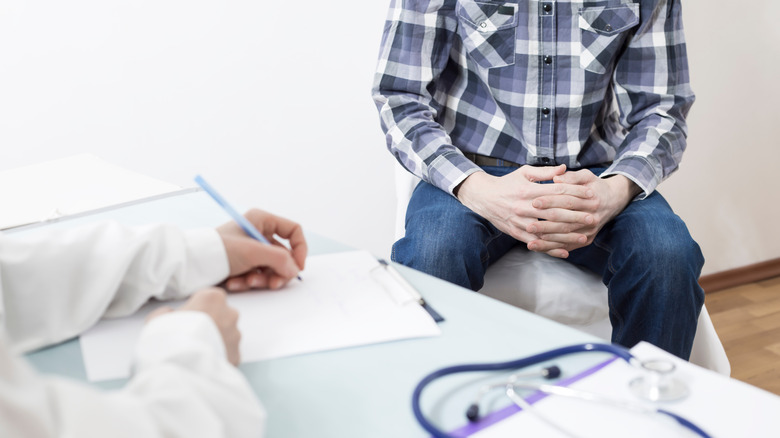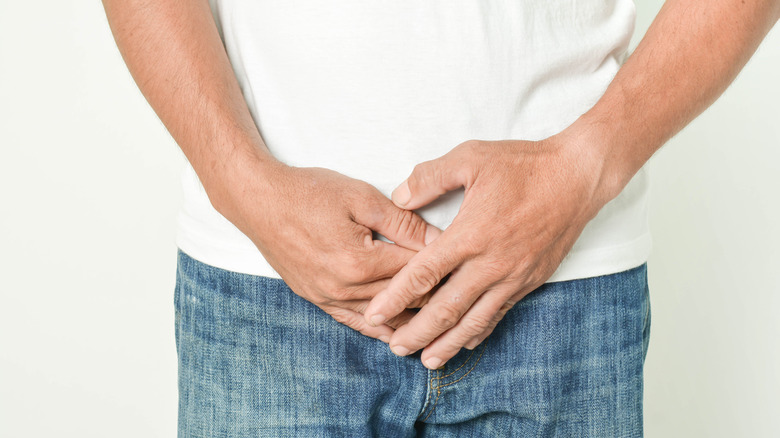How Often You Should Really Get Tested For STDs
The social stigma surrounding STDs and STIs can make them a difficult thing to talk about. However, it's important to be tested for STDs periodically, not only to protect yourself but to protect anyone that you might be having sexual relations with (via Verywell Health). If you don't visit a doctor every year for your annual physical, it can be hard to remember to get tested for things like STDs on your own.
STDs can be a sensitive and embarrassing thing to talk about, but doctors and nurses are there to help you with your preventative care and make sure that you're taking the best care of yourself that you possibly can be. Even if you always use protection like condoms, you're still not protected completely from STDs and it's important to get tested regularly, according to Verywell Health. If you've ever wondered how often you should get tested for STDs, we're here to provide some guidance.
What's your relationship status?
If you're in a monogamous relationship, you might think that you're safe from having to get tested for STDs because you don't have multiple sexual partners. However, the CDC recommends that all adults should get tested for HIV at least once. Sexually active women, regardless of relationship status, should get tested for gonorrhea and chlamydia at least once a year, and gay and bisexual men are advised to get tested annually for chlamydia, gonorrhea, and syphilis. Additionally, it may be beneficial to get tested for HIV every three to six months.
If you're having casual sex or you're just starting to see someone, it's even more important to get tested for STDs (via National Coalition for Sexual Health). New or multiple partners can increase the risk of exposure to STDs. Even if you don't have symptoms, you should still seek STD testing if you have unprotected sex with someone new or if you find out later that they have an STD. Even if you don't feel any uncomfortable symptoms, undiagnosed STDs can cause all kinds of problems down the line if you don't treat them in a timely manner (via Planned Parenthood).
Are you having symptoms?
Of course, if you are having STD symptoms such as bumps around your genitals, burning when you pee, irregular discharge, or itching, you should get tested right away (via Planned Parenthood). Talk to your doctor as soon as possible so you can be treated appropriately.
If you do test positive for an STD, you'll most likely have to take more frequent tests following your diagnosis in order to be sure the treatment plan your doctor prescribed is working. If you have an STD, it's more likely that you'll have an STD again in the near future, so no matter what your relationship status is, you should follow your doctor's instructions and continue to get tested to make sure your STD doesn't return (via National Coalition for Sexual Health). And remember, Many STDs don't have any outward symptoms so testing is often the only way to tell if you have one or not, Planned Parenthood explained.



